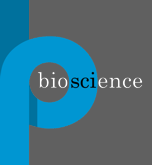Ethical Considerations, Pros, and Cons in the Use of Classroom Education Software
In the digital age of training, the integration of classroom education software has turned out to be a cornerstone of cutting-edge teaching methodologies. This introduction aims to outline what constitutes lecture room schooling software, setting the degree for a deeper exploration of the moral considerations, blessings, and disadvantages related to its implementation.
The period "school room education software program application" functions a wide spectrum of digital devices designed to enhance coaching and mastering enjoy. From interactive learning structures to administrative systems, these software solutions have emerged as crucial to the contemporary academic landscape.
Ethical Considerations
Student Data Collection and Privacy
In the realm of student data collection and privacy, it's crucial to consider tools like Edulegit.com, an advanced classroom computer monitoring software meticulously crafted for the purpose of assignment evaluation. Tailored to meet the needs of educators and teaching staff in educational institutions, Edulegit.com offers a range of unique selling points designed to enhance the overall assessment process and promote academic integrity.
Edulegit.com Overview
Edulegit.com contributes significantly to the ethical considerations surrounding student data by providing a comprehensive solution for assignment evaluation. Here are key features that address privacy concerns while enhancing the learning experience:
- Automated Plagiarism and AI-Generated Content Checks: Edulegit.com streamlines the process of checking student papers by automating the detection of plagiarism and content generated by artificial intelligence. This feature ensures a thorough examination of academic work for originality and authenticity.
- Real-time Monitoring of Student Approach: The software actively monitors students' engagement and approach to their responsibilities. Providing real-time insights, Edulegit.com offers educators a valuable perspective on students' work habits and commitment.
- Time-Efficient Paper Assessment: Edulegit.com contributes to increased efficiency in the assessment workflow by significantly reducing the time educators spend on evaluating papers. This time-saving aspect allows educators to allocate more of their valuable time to teaching and other important responsibilities.
- Alerts for Plagiarized Content and AI-Generated Material: The tool includes an alert system that promptly notifies educators about any instances of plagiarized content or material generated by AI. This proactive approach empowers educators to address academic misconduct swiftly and maintain the integrity of the learning environment.
- Comprehensive Monitoring of Writing Activities: Edulegit.com goes beyond traditional monitoring by providing a comprehensive overview of writing activities in the classroom. This feature ensures educators have a holistic understanding of students' writing behavior, facilitating more informed decision-making.
These features align with ethical considerations by prioritizing academic integrity, real-time insights, and efficient assessment processes, contributing positively to the landscape of student data privacy in the context of classroom education software for instructional insights and safeguarding individual privateness will become imperative.
Educator Data and Privacy
The use of training software programs now not most effective involves pupil records however also extends to the information of educators. Examining how these technologies affect the privacy of instructors and directors sheds light on the broader moral panorama.
Educational establishments bear a duty to uphold the privacy rights of each student and educator. This includes implementing robust safety features, making sure facts are encrypted, and establishing clear regulations on data get admission and utilization.
Informed Consent and Transparency
Obtaining informed consent from students, educators, and different stakeholders is a foundational ethical precept. This includes transparent verbal exchange about the sorts of statistics accrued, how it will likely be used, and the security measures in the area.
Transparency is fundamental to keeping trust in the use of study room schooling software. Educational establishments need to communicate approximately their statistics usage regulations, presenting stakeholders with a comprehensive know-how of how their data are handled.
Pros and Cons of Classroom Education Software
Pros of Classroom Education Software
Classroom schooling software program has the potential to convert traditional mastering into a dynamic and interactive experience. Interactive training, multimedia content material, and gamified factors can captivate students' attention and deepen their understanding.
Streamlining administrative responsibilities, which include grading, attendance monitoring, and communique, can substantially enhance the efficiency of educators. This permits teachers to awareness aware of the real teaching and mentoring components of their roles.
Classroom education software program permits personalized knowledge of paths, catering to male or woman scholar desires and gaining knowledge of patterns. Adaptive learning structures can adjust content shipping based totally on a scholar's progress, fostering an extra customized academic adventure.
Cons of Classroom Education Software
One of the number one drawbacks is the potential compromise of privacy. The large collection and utilization of sensitive facts may additionally lead to privacy breaches if good enough security features aren't in the area.
The digital nature of schoolroom training software makes it liable to fact breaches. Unauthorized entry to scholar or educator statistics poses a good sized chance and calls for robust cybersecurity measures.
The reliance on the era for training introduces accessibility challenges, as now not all college students may additionally have equal right of entry to devices or a dependable net connection. This creates disparities inside the getting-to-know experience, raising issues about educational fairness.
As the education landscape continues to evolve, educators and institutions locate themselves on the intersection of technological innovation and moral duty. This conclusion emphasizes the need for knowledgeable decision-making and moral issues whilst integrating study room schooling software. Striking a balance between leveraging the blessings of technology and safeguarding the privateness and equity of students and educators is essential. By navigating the ethical concerns and being conscious of the pros and cons, educators can make certain that technology complements, instead of compromises, the academic journey.
